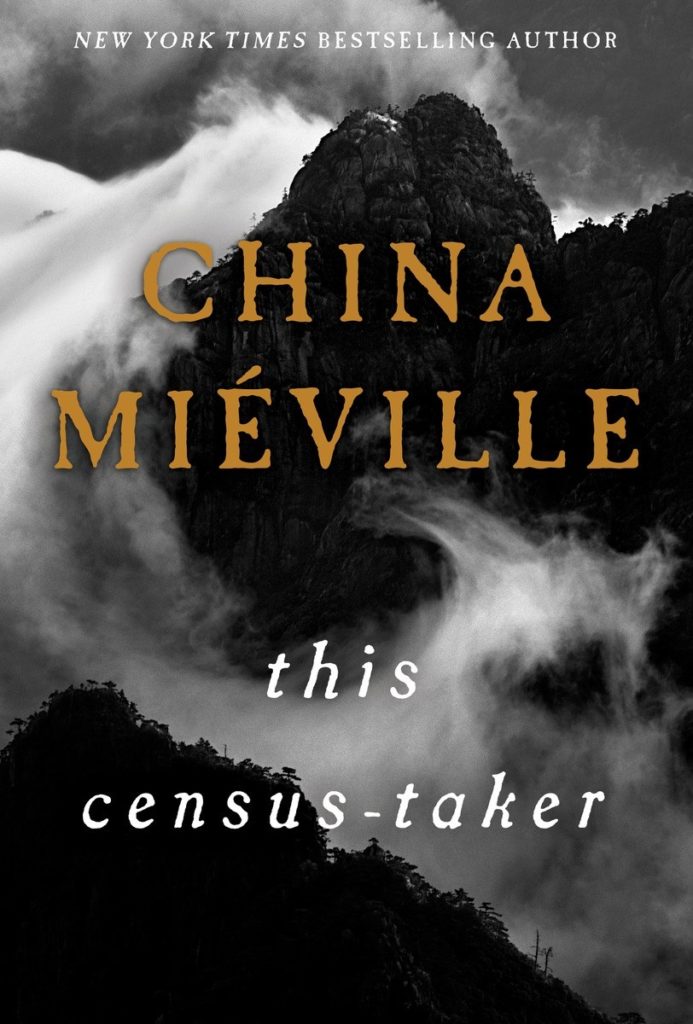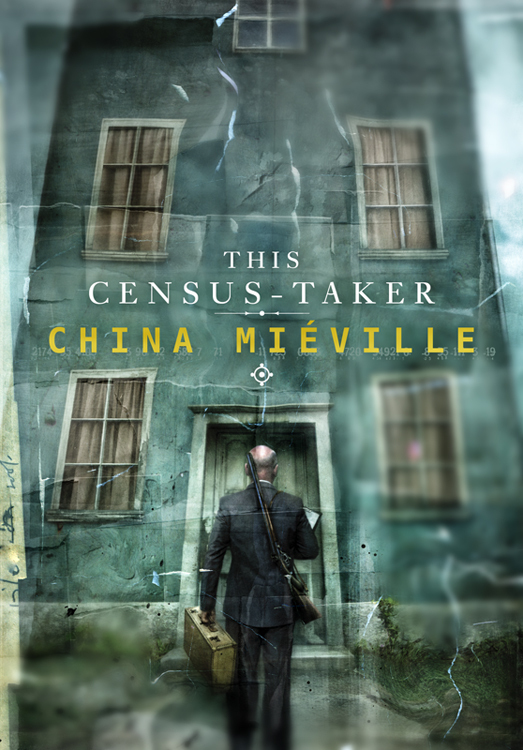 This Census-Taker (2016)
This Census-Taker (2016)
Written by: China Miéville
Genre: Speculative Fiction
Pages: 206 (Hardback)
Publisher: Del Rey
Why I Chose It: Although I have heard of China Miéville’s most famous work, Perdido Street Station, I have never read any of his books before. I have been trying to expand my horizons and read more novellas, so when I learned that This Census-Taker was nominated for a 2017 Hugo Award and available at my local library, I decided to give it a shot.
The premise:
In a remote house on a hilltop, a lonely boy witnesses a profoundly traumatic event. He tries — and fails — to flee. Left alone with his increasingly deranged parent, he dreams of safety, of joining the other children in the town below, of escape.
When at last a stranger knocks at his door, the boy senses that his days of isolation might be over.
But by what authority does this man keep the meticulous records he carries? What is the purpose behind his questions? Is he friend? Enemy? Or something else altogether?
Filled with beauty, terror, and strangeness, This Census-Taker is a poignant and riveting exploration of memory and identity.
No Spoilers Below.
Discussion: Full disclosure — if I hadn’t been reading this book for a review, I would have tossed it aside after the first few pages. An act of violence is committed, but it’s not clear which person is the victim and which is the perpetrator. The narration switches from first person to third person for no apparent reason. It’s incredibly confusing, and I thought I would have to force myself to finish the book. Fortunately, the story starts making a little more sense after the first couple of chapters.
The narrator is a young boy who lives on an isolated hill above a poverty-stricken town with his volatile father and unhappy mother. The father’s job is making magical keys that bring the townspeople love, wealth, and strength. It’s never exactly clear if the father’s magic is real. The magic keys are the only truly fantastical element in this story. There are vague references to war and the father having fled to this lonely mountain to escape persecution for some sort of crime.
 This is an ethereal and dream-like book. Miéville excels at creating haunting imagery. There are several scenes of the boy’s father beating animals to death that are straight out of a nightmare. The father throws their bodies into the seemingly bottomless pit that they also use as a garbage dump.
This is an ethereal and dream-like book. Miéville excels at creating haunting imagery. There are several scenes of the boy’s father beating animals to death that are straight out of a nightmare. The father throws their bodies into the seemingly bottomless pit that they also use as a garbage dump.
“The dog was born to descend this way. Millions of years ago, the stone had split to receive it. My father started down into the hill with such focus it was as if he had done all of this, this killing, because he had to see an animal fall.” (p. 25).
“I knew he was taking the dead bird to the rubbish hole, that he’d throw it up so it would curve as it had to and descend; I knew that day my father was feeding only the darkness.” (p. 63).
There is also an exquisite but eerie description of the orphan children who live in the town using bugs to fish for bats.
“There’s skill in attaching the insect so you don’t kill it or harm its wings. And you mustn’t use heavy wire. If you get everything right, your cicada, or whatever you have, will try to fly away and spiral madly in the air, lurching at the limits of the line. At dusk, the town bridge wore a beard of poles and frenetic tethered insects.” (p. 51).
The book leaves many questions unanswered. Even something as simple as the setting is a mystery. When I read the book, I imagined that it was taking place in an Asian country in the not too distant past. There isn’t any mention of modern technology, law enforcement is haphazard, and poverty is extreme. The children don’t fish for bats out of immature cruelty — they eat them. But when I started looking at other people’s reviews, I learned that some think the book is set in a post-apocalyptic England. I realized that I only pictured the book happening in Asia because of the photo on the cover. It could just as easily be South America, Africa, or a post-apocalyptic England or America. When the book jumped ahead to the boy’s adulthood, I had no idea what was going on. As far as I can tell, he is a prisoner being forced to write his memoirs. You never learn if the father murders animals to throw them in the pit as part of some kind of black magic or if he’s merely a jerk. Even the act of violence that is the book’s central narrative event is never definitively resolved. I found all the ambiguity unnecessary and frustrating.
In conclusion: Whether you think that This Census-Taker is brilliant or garbage is going to be a matter of personal taste. If you enjoy surrealist books and value beautiful writing above story-telling, you will love it. If you don’t like being confused or books that leave unresolved questions, you will hate it. Miéville’s writing is lovely, but this would have been a much better book if it wasn’t so needlessly vague. The Ballad of Black Tom is the only other 2017 Hugo Best Novella nominee that I have read but I vastly preferred Victor LaValle’s innovative retelling of a H.P. Lovecraft story.

I’m trying to remember the last Mieville I read. The first was Perdido Street Station, which I enjoyed for all its weirdness. Oh, and the other was Embassytown, which didn’t engage me, which is why I forgot about it until I looked up my old reviews on LJ.
I’ve got The City & The City, which won the Hugo for its year (tied with Paolo Bacigalupi’s Wind-Up Girl), and I hear is wonderful. I want to read that one day for sure.
I do want to read Mieville’s other books, even though this one was a swing and a miss for me.
I wanted to read this; even when I don’t like Mieville’s books, the writing is fascinating, but animal cruelty is just a nearly automatic nope for me. His City & the City was awesome. And Railsea really grew on me. On the other hand Un Lun Dun was meh, and The Scar, while writer-brilliant, was reader-infuriating.
I may have emphasized the animal cruelty too much; the quotes I selected are probably the worst parts.